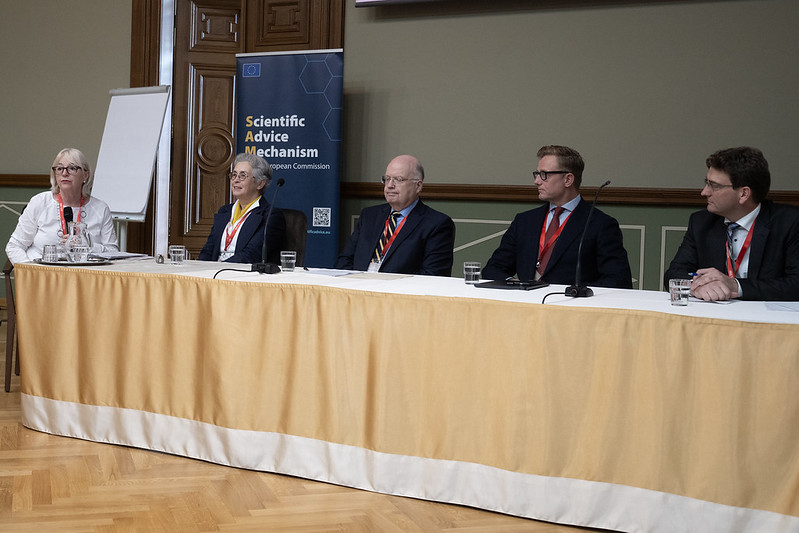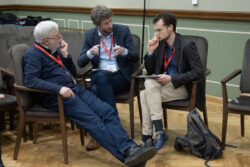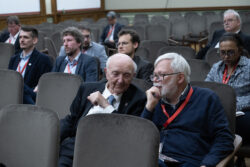
News
The central theme of the event was integrity and reliability in scientific advice in a rapidly changing scientific and social environment. Barbara Prainsack highlighted ALLEA‘s role in strengthening ethical and responsible research, open science, and democratic systems, as well as the importance of a solidarity-based approach. She summarized the concept of integrity along three main principles: objectivity, accountability, and honesty. In practice, integrity also includes transparency, i.e. the disclosure of limitations, assumptions, and conflicts of interest, as well as the involvement of different perspectives (e.g. stakeholders, decision-makers).
Panel discussion: “The integrity of science advice – core principles and challenges”
The participants of the panel discussion (Thomas Krieg, Sabina Leonelli, Peter Lund, Ana Marusic, Markus Prutsch) discussed the problematic of “black boxes” (non-transparent systems) both in the domain of AI and the relationship between science and policy. Their key message was the following: more than mere data transfer, science advice is responsible communication, which requires capacity, time, and openness on behalf of both the scientific community and decision-makers. Improving and further developing the process is crucial on the part of science, while unbiased knowledge acquisition remains a challenge in practice.
The delegates of the Hungarian Young Academy joined two workshops:
1) Articifial intelligence (AI)
The workshop addressed the following key questions: How can the use of AI tools help to preserve integrity and public trust in the process between science and decision-making, rather than undermining it? How can transparency, fairness, and accountability be ensured when using technologies that often operate in a non-transparent, “black box” manner? One of the conclusions of the discussion was that AI should be seen as a useful tool for scientific research and communication between science and policy, but at the same time, oversight of the processes performed by AI must be ensured. An important element of transparency may be critical monitoring to ensure that the work process is controlled, and that the AI work flow is understood and directed rather than left to operate without control. In other words, AI should fulfil a supporting rather than a central role in the work process.
4) Challenges in an increasingly cynical world: trust
The workshop focused on the following key questions: What are the most important elements of successful and reliable communication? Why is the world becoming increasingly cynical, and how can trust be built and strengthened? What can decision-makers do when rapid change is needed but there is no guarantee that society will trust and accept it? The group discussions highlighted a number of country-specific issues, such as the inappropriate, self-serving use of scientific findings and inconsistent communication on certain topics. Another major challenge is the increased flow of information due to social media, which on the one hand allows for the selection of information, but on the other hand can also lead to overload, resulting in indifference towards certain topics or individuals.


(Photos by courtesy of mta.hu and Tamás Szigeti)